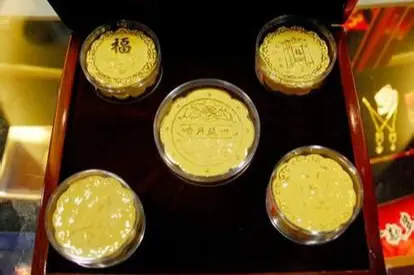It’s been seven years since the Arab Spring protests led to the ouster of Egypt’s long-time president Hosni Mubarak.
Since then, the country has seen a military coup, a crackdown on protesters and a series of terror attacks.
As Egyptians prepare to go to the polls in March in what is likely to be another victory for incumbent President Abdel Fattah al-Sisi, how have things changed in the country, and what is the legacy of the Arab Spring?
Tahrir Square
In January 2011, Arab Spring protests that had begun in Tunisia and would sweep through the Middle East and Northern Africa, arrived in Egypt. Thousands of protesters gathered in Cairo’s famed Tahrir Square, demanding the resignation of Hosni Mubarak, who had been in power for 30 years.
Tens of thousands fill Cairo's Tahrir Square to pressure Egypt's military leaders to hand over power to a civilian government, November 22, 2011.
Not long after, on February 11, he finally stepped down, handing power over to the army. Protests, however, continued over the spring and summer amid anger that political reforms were not materializing fast enough.
In June 2012, Egypt held its first free presidential elections in decades. Mohammed Morsi of the Islamist Muslim Brotherhood won.
But the honeymoon did not last long. By November 2012, Morsi’s authoritarian policies were sparking new protests around Egypt. In June 2013, as he celebrated his first year in power, millions took to the streets to demand his resignation. Days later, the military, led by army chief Abdel Fattah al-Sisi, ousted Morsi.
Reckoning
The fate of some of the main figures in these events has fluctuated with successive governments.
Mohamed Morsi addresses tens of thousands of Egyptians in Cairo's iconic Tahrir Square, June 29, 2012, days after he was elected as president.
Mubarak was first sentenced to life in prison for his complicity in the killing of protesters in Tahrir Square in 2011 but was later cleared – a ruling confirmed last year by Egypt’s top court. The former president is now free.
Morsi, meanwhile, has seen charges and convictions against him pile up. Among other things, he has been found guilty of ordering the arrest and torture of protesters in 2012, spying for Qatar, conspiring to commit terrorist acts, and insulting the judiciary, earning him several prison sentences of 20 years and more.
What’s Egypt like in 2018?
Economy
Economic inequality and high youth unemployment helped set off the Arab Spring protests, but the chaos they brought on wreaked havoc on Egypt’s economy and its crucial tourism industry as visitors and foreign investors stayed away.
This file photo taken on January 20, 2016 shows street vendors as they await customers near the Giza pyramids in southern Cairo‘s Giza district.
Egypt now seems to have recovered from this slump. GDP growth is up, inflation is down, the budget deficit has narrowed, the Egyptian pound has stengthened and tourism revenues are increasing. The World Bank and International Monetary Fund have credited the government’s “prudent macroeconomic policies” and “bold and transformational reforms program.”
Austerity measures have, however, made life hard for many Egyptians.
In a report on Tuesday, the IMF urged the government in Cairo to drop taxes that unfairly benefit the wealthy and make sure economic gains trickle down to lower-income families and are invested in education, health and infrastructure. The government should also tackle perceived corruption and better integrate women and young people in the job market, it said.
Politics
A year after he forced Morsi out, Sisi was elected president following a landslide victory. Since then, he has very much been the man in charge.
Thousands of Egyptian protesters attend a rally in Tahrir Square to demand an end to military rule in Cairo, November 22, 2011.
But while stability has returned to Egypt, critics have accused him of cracking down on political opponents and activists.
Thousands of Muslim Brotherhood members have been arrested since 2013. The Brotherhood itself and its political wing, the Freedom and Justice Party, have been banned and mass trials have resulted in death and life sentences.
Ahead of the presidential first-round vote in March, Sisi’s government has made sure he remains virtually unopposed, experts say.
One top contender, former army chief Sami Anan, was reportedly detained on Tuesday in Cairo. Another top military officer was sentenced to jail time in December after announcing he wanted to run. Others, such as Ahmed Shafiq, a prime minister under Mubarak, and Mohamed Anwar Sadat, nephew of former president Anwar Sadat, have dropped out of the race citing an unfair political climate.
Security
Sisi and his supporters say many of the government’s harshest measures are needed to keep the country safe.
People walk by a poster of Egypt's President Abdel Fattah al-Sisi for the upcoming presidential election in Cairo, January 22.
But a string of attacks since 2013 have shown Egypt remains vulnerable.
An attack on a mosque in North Sinai in November, believed to have been carried out by ISIL, left over 300 people dead. Coptic Christians, Egypt’s Christian minority, have also been a prime target. Last April, ISIL claimed responsibility for two bomb attacks at Coptic churches in Cairo and Alexandria that killed some 45 people.
Since then, Egyptians have been living under a state of emergency… just as they did until Mubarak’s removal.
(CGTN)
 简体中文
简体中文

